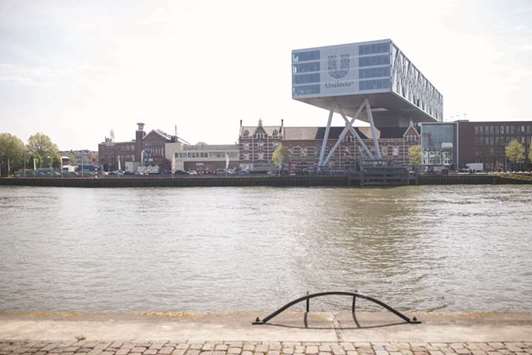Unilever reported disappointing third-quarter sales having lost market share to smaller rivals, dampening hopes that a failed takeover bid by Kraft Heinz would spark a swift improvement in performance.
Underlying sales rose only 2.6%, Unilever said yesterday.
That was below the 3.9% growth expected by analysts, and the 3% seen in the first half of the year.
The company expressed optimism, however, about the auction of its shrinking margarine and spreads business, which officially kicked off last month.
First-round bids, expected to reach around $8bn, are due yesterday, according to sources familiar with the matter.
The company blamed poor weather in Europe, hurricanes in the United States and earthquakes in Mexico for disrupting sales.
But it also cited the growing threat from local competitors in markets such as US ice cream, where it lost market share to Halo Top, a new low-calorie brand capitalising on growing demand for healthier products and niche names.
Unilever has made 18 acquisitions since 2015, but is still struggling.
“Our competitiveness has dropped off a little,” chief financial officer Graeme Pitkethly said.
The company is only gaining market share in about half of its business, he said, down from about 60% in previous years.
The sale of the margarine and spreads business is progressing well, Pitkethly said.
Unilever lifted its profitability target in July as it sought to prove it can deliver better near-term returns as a standalone company.
That sparked concern that lower spending on marketing would hurt sales growth in the future.
Pitkethly said the quarter came up about €150mn, or about one day’s worth of sales, short of internal hopes.
Unilever’s ice cream business, which also includes Ben & Jerry’s and Wall’s, saw double-digit declines in Europe, hurt by poor weather.
Unilever had reduced its advertising and marketing spending by 130 basis points in the first half of the year, in an effort to cut costs in the wake of Kraft’s bid.
It said yesterday that its reduced competitiveness was not due to the lower spending or focus on margin growth.
Turnover fell by 1.6%, hurt by a 5.1% hit from foreign exchange rates, the company said.
The company stood by its full-year forecast for sales growth of 3 to 5%, an improvement in underlying operating margin of at least 100 basis points and strong cash flow.

